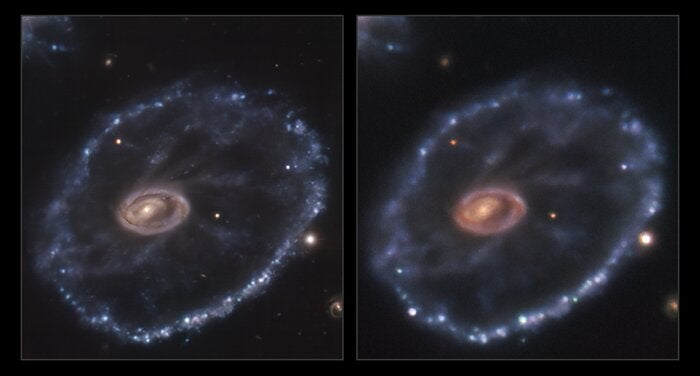Scientists spot incredible explosion in Cartwheel galaxy 500 million light-years away
Astronomers spotted the astonishing supernova happening right before their eyes

Scientists have spotted an astonishing event happening in the Cartwheel galaxy, 500 million light-years away from Earth.
The galaxy lies in the constellation Sculptor and was once a normal spiral galaxy, but a collision with a smaller companion star system gave it its signature appearance.
But in the lower-left corner of the galaxy, astronomers spotted another interesting event: a supernova taking place right before their eyes.
The event, called SN2021afdx, is a type II supernova, is a part of the last stage of a stars’ lifespan. The star can shine brighter than the entire host galaxy and be visible for months or even years.
Supernovas take place when a star runs out of nuclear fuel, so its mass flows into its core. Eventually, this makes the core so heavy that the force of its own gravity makes it collapse, resulting in an enormous explosion.
While supernova only burn for a short period of time, finding them and studying them can reveal to scientists a huge amount about the universe. Scientists have used supernova to discover that the universe is expanding and that the explosions can move elements throughout the elements - the origin of many of the elements that we find on Earth.

The first time SN2021afdx was spotted was in November 2021 by the ATLAS survey, and it was then followed up by ePESSTO+, the advanced Public ESO Spectroscopic Survey for Transient Objects.
Join our commenting forum
Join thought-provoking conversations, follow other Independent readers and see their replies
Comments
Bookmark popover
Removed from bookmarks